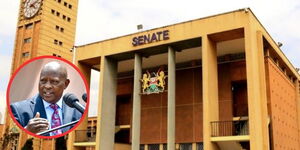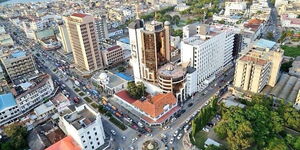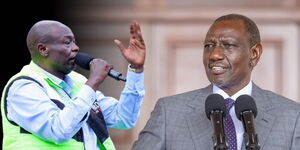Treasury Cabinet Secretary John Mbadi is expected to present the Statement for the Ksh4.23 trillion 2025/2026 Budget before Parliament on Thursday, June 12, it has been confirmed.
Through a notice, Mbadi said the event will take place from 3pm as he plans to outline the government’s revenue and expenditure plans for the upcoming financial year.
This will also include a brief on Kenya’s economic performance and outlook, revenue targets, sectoral allocations, deficit financing and tax proposals.
But what should Kenyans expect? In the new budget, the government has allocated Ksh3.09 trillion for recurrent expenditure, Ksh725.1 billion for development projects, Ksh436.7 billion in county transfers, and a Ksh5 billion provision for the Contingency Fund.
Initially set at Ksh4.5 trillion, the budget was trimmed down by the Cabinet to Ksh4.2 trillion, reflecting adjustments in fiscal priorities. However, it still marked an increase from the previous year’s Ksh3.9 trillion.
While presenting the Budget Statement, CS Mbadi will also table before Parliament the Budget Estimates Book, providing a line-by-line breakdown, the 2025 Finance Bill, the Appropriations Bill which authorizes spending of public funds, the Budget Policy Statement and the Medium-Term Debt Strategy.
While key sectors such as Energy, Infrastructure, and ICT are set to benefit significantly, others will see reductions as the government attempts to balance its expenditures.
The Executive branch is set to receive Ksh2.494 trillion, indicating a boost of approximately Ksh522.52 billion. Parliament's allocation has seen a slight increase, while the Judiciary's budget has been adjusted to Ksh25.749 billion from the previous Ksh27.749 billion, reflecting a reduction of Ksh2 billion.
A comparative analysis between the current and new budget reveals the Education sector as one of the biggest beneficiaries with an allocation of Ksh850.677 billion. This represents an increase from the previous year's Ksh656.6 billion, reflecting a substantial boost of approximately Ksh194 billion. The enhanced funding is expected to support various educational initiatives, including infrastructure development and curriculum reforms.
Conversely, the Health sector will get a reduced budget. The current proposal allocates Ksh127 billion to healthcare, a decrease from the previous year's Ksh147 billion, indicating a cut of Ksh20 billion. This reduction may impact ongoing health programmes and the implementation of Universal Health Coverage initiatives.
In terms of revenue generation, the government aims to collect Ksh2.835 trillion in taxes in the next financial year, up from the projected Ksh2.6314 trillion in the current year. This target indicates an anticipated increase of approximately Ksh203.6 billion, reflecting the government's strategy to bolster revenue through enhanced tax collection measures.
This was reflected in the 2025 Budget Policy Statement (BPS) that articulated the government's economic priorities, focusing on sustaining growth, ensuring fiscal stability, and promoting inclusive green development.
All in all, the government's fiscal policy for 2025/26 prioritises fiscal consolidation to reduce debt vulnerability while ensuring adequate funding for essential public services. This would be achieved through expenditure rationalisation, revenue mobilisation, and enhanced tax compliance.
In the same breadth, the Medium-Term Revenue Strategy would guide tax reforms, ensuring efficiency, fairness, and progressivity while balancing revenue generation with social protection. Key measures include expanding the tax base, leveraging technology for tax efficiency, sealing revenue loopholes, and maximising non-tax revenues from ministries, departments, and agencies.
Even so, lawmakers will have the opportunity to debate budget proposals after Mbadi’s reading with committees such as the Budget and Appropriations Committee playing a key role in reviewing and providing recommendations.
Notably, Parliament must approve the budget before the beginning of the fiscal year. The event, which is broadcast live, will give Kenyans the opportunity to react to the Budget reading and possibly provide their feedback on the same.












